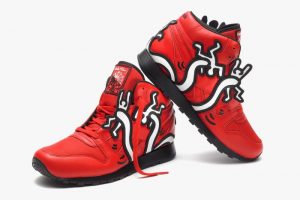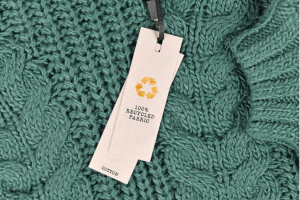Step into the world of Sustainable denim brands where style meets sustainability. Discover the key to eco-friendly fashion and how these brands are revolutionizing the denim industry.
From ethical practices to innovative technologies, explore how Sustainable denim brands are making a difference one pair of jeans at a time.
Sustainable Denim Brands
When it comes to sustainable denim brands, it’s all about companies that prioritize ethical practices, environmentally friendly processes, and social responsibility. These brands aim to minimize their impact on the planet while still delivering high-quality denim products.
Key Characteristics of Sustainable Denim Brands
- Use of organic or recycled materials
- Water-saving production processes
- Fair labor practices
- Transparent supply chain
- Efforts to reduce carbon footprint
Importance of Supporting Sustainable Denim Brands
Supporting sustainable denim brands is crucial for the future of our planet. By choosing to purchase from these brands, consumers are encouraging more companies to adopt eco-friendly practices and ethical standards. This not only helps protect the environment but also ensures the well-being of workers in the supply chain.
Ethical Sourcing and Production

In sustainable denim brands, ethical sourcing of materials and fair labor practices in production are crucial aspects that contribute to the overall sustainability of the industry.
Significance of Ethically Sourced Materials
Ethically sourced materials in sustainable denim brands ensure that the raw materials used are obtained in a responsible and sustainable manner. This includes sourcing organic cotton, recycled fibers, or using eco-friendly dyeing processes. By choosing ethically sourced materials, brands can reduce their environmental impact and support fair trade practices.
Fair Labor Practices in Production
Sustainable denim brands prioritize fair labor practices in their production processes. This involves ensuring safe working conditions, fair wages, and reasonable working hours for all employees involved in the manufacturing process. By upholding fair labor practices, brands can support the well-being of workers and promote social responsibility within the industry.
Environmental Impact Comparison
When comparing traditional denim manufacturing to sustainable practices, the environmental impact is significant. Traditional denim manufacturing processes often involve the use of toxic chemicals, excessive water consumption, and high energy usage. On the other hand, sustainable denim brands focus on reducing water usage, using eco-friendly dyes, and implementing recycling initiatives to minimize their environmental footprint. By adopting sustainable practices, brands can reduce pollution, conserve natural resources, and promote a healthier planet.
Innovative Technologies
In the realm of sustainable denim production, cutting-edge technologies play a crucial role in reducing environmental impact and promoting ethical practices. These innovative technologies are revolutionizing the way denim is manufactured, leading to significant improvements in water conservation and reduction of chemical usage.
Ozone Technology
Ozone technology is one of the most groundbreaking advancements in sustainable denim production. By using ozone gas instead of traditional water-intensive processes like stone washing and bleaching, brands can achieve the same distressed look on denim while drastically reducing water consumption. Ozone technology also eliminates the need for harmful chemicals, making it a more eco-friendly option for denim finishing.
Recycled Water Systems
Many sustainable denim brands are implementing advanced water recycling systems in their production facilities. These systems treat and filter wastewater from the manufacturing process, allowing it to be reused in subsequent production cycles. By recycling water, brands can significantly decrease their overall water usage and minimize the environmental impact of denim production.
Nano Bubble Technology
Nano bubble technology is another innovative solution that is being adopted by sustainable denim brands. This technology creates tiny bubbles in water that are highly effective in cleaning and treating denim fabrics. By using nano bubble technology, brands can achieve the same level of cleanliness and finish on denim garments with less water and detergent, reducing chemical usage and improving overall sustainability.
Transparency and Traceability
Transparency and traceability play a crucial role in the fashion industry, especially when it comes to sustainable denim brands. By providing clear visibility into their supply chain, brands can build trust with consumers, showcase their ethical practices, and ensure accountability for their production processes.
Importance of Transparency
Transparency in the fashion industry allows consumers to make informed decisions about the products they purchase. It involves disclosing information about where and how garments are made, the materials used, and the environmental impact of production. This level of openness helps consumers support brands that align with their values and encourages companies to uphold high ethical standards.
Maintaining Transparency in the Supply Chain
Sustainable denim brands maintain transparency in their supply chain by partnering with suppliers who share their commitment to ethical sourcing and production. They often work directly with manufacturers and farmers to ensure fair labor practices, minimize environmental impact, and trace the journey of materials from start to finish. Some brands even use blockchain technology to provide real-time visibility into their supply chain, enhancing trust and accountability.
Benefits of Consumer Knowledge
When consumers know the journey of their denim products, they can feel confident in their purchase decisions. Understanding the sustainable practices, ethical sourcing, and production processes behind their clothing allows consumers to support brands that prioritize social and environmental responsibility. This knowledge empowers consumers to make choices that align with their values and contribute to a more sustainable fashion industry.
Collaborations and Partnerships
When sustainable denim brands collaborate with other eco-friendly initiatives, they amplify their impact and promote ethical practices across various industries. These partnerships not only benefit the brands involved but also contribute to positive environmental and social changes.
Impact of Partnerships with Sustainable Organizations
Collaborating with sustainable organizations allows denim brands to access expertise, resources, and networks dedicated to promoting environmental and social responsibility. By partnering with like-minded organizations, brands can leverage their combined efforts to drive innovation, raise awareness, and implement sustainable practices throughout the supply chain.
- Through partnerships with NGOs focused on sustainable fashion, denim brands can gain valuable insights into best practices for ethical sourcing, production, and waste reduction.
- Collaborations with environmental advocacy groups help brands align their sustainability goals with broader initiatives to combat climate change, reduce water consumption, and minimize carbon emissions.
- Working with fair trade organizations ensures that workers along the supply chain are treated ethically and paid fair wages, promoting social responsibility within the industry.
Examples of Successful Collaborations
1. The partnership between denim brand Nudie Jeans and the Fair Wear Foundation has resulted in improved working conditions for garment workers and increased transparency in the supply chain.
2. Patagonia’s collaboration with the Textile Exchange has led to the adoption of more sustainable materials and production techniques, reducing the brand’s environmental impact.
3. Levi’s collaboration with the Better Cotton Initiative has facilitated the transition to more sustainable cotton farming practices, benefiting both the brand and the environment.
Clothes and Shoes
Sustainable denim brands play a crucial role in the larger context of eco-friendly clothing and footwear. By focusing on sustainable practices in denim production, these brands set a positive example for the fashion industry as a whole, influencing consumers to make more conscious choices in their wardrobe selections.
Influence on Wardrobe Sustainability
When considering the impact of sustainable denim brands on the overall sustainability of a consumer’s wardrobe, it is essential to recognize the ripple effect they can have. By prioritizing ethical sourcing, innovative technologies, and transparency in their production processes, these brands encourage consumers to think more critically about the environmental and social implications of their clothing choices.
Tips for Building a Sustainable Wardrobe
- Invest in quality pieces: Opt for durable denim, clothing, and shoes that are made to last, reducing the need for frequent replacements.
- Choose timeless styles: Select classic designs that won’t go out of fashion, allowing you to wear them for years to come.
- Support ethical brands: Look for companies that prioritize sustainability, fair labor practices, and transparency in their supply chain.
- Explore second-hand options: Embrace thrift shopping, clothing swaps, and vintage finds to extend the lifespan of garments and reduce waste.
- Care for your items: Follow proper care instructions to maintain the quality and longevity of your denim, clothing, and shoes.
Final Review

In conclusion, Sustainable denim brands are not just about fashion, but a commitment to a greener planet. Embrace the future of denim with brands that care about our environment and our future generations.
FAQ
What makes a denim brand sustainable?
A sustainable denim brand focuses on using eco-friendly materials, ethical production practices, and reducing environmental impact.
How do sustainable denim brands ensure fair labor practices?
Sustainable denim brands ensure fair labor practices by partnering with factories that provide safe working conditions and fair wages to workers.
What are some examples of sustainable denim brands leading in technological innovation?
Some examples include brands using laser technology for distressing instead of chemicals and implementing water-saving dyeing techniques.

.jpg?w=700)


